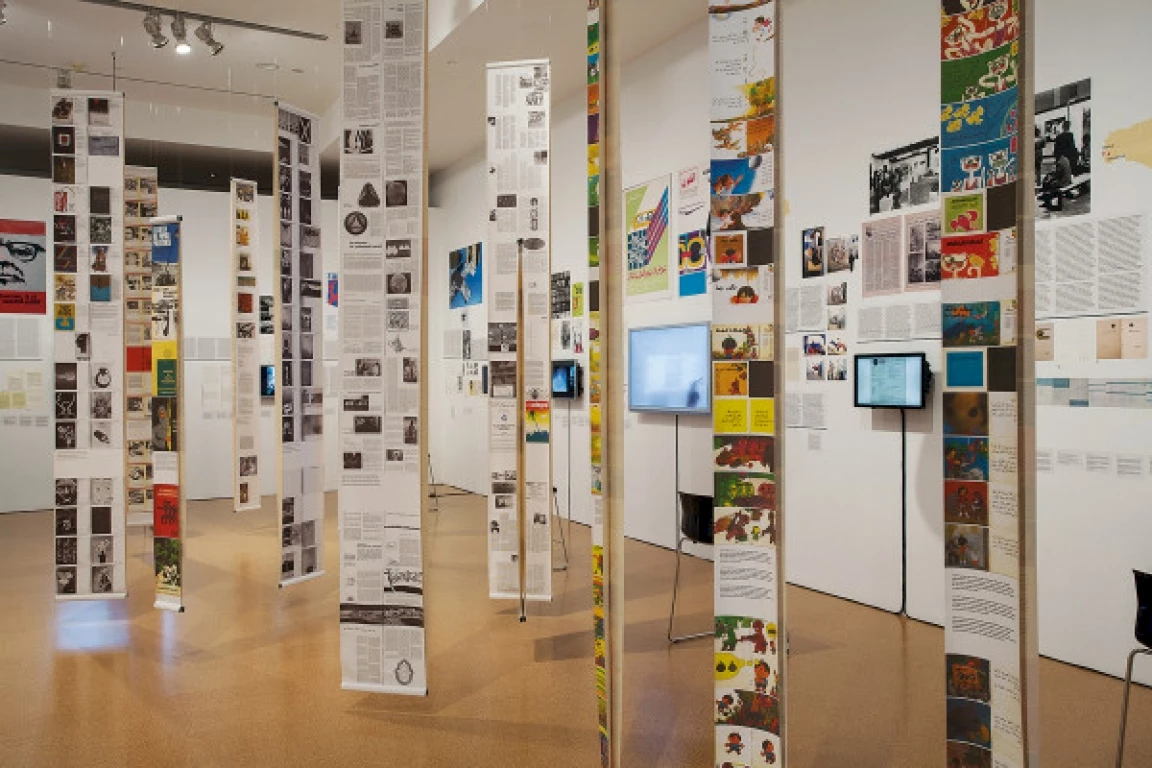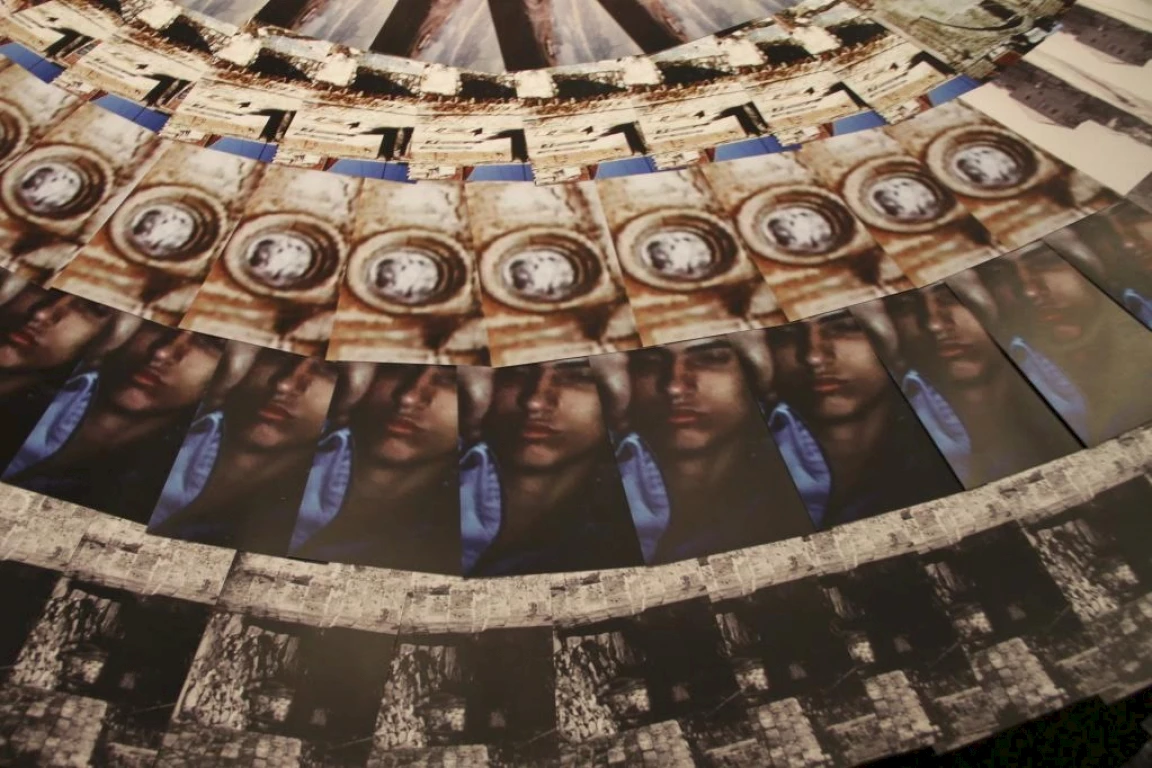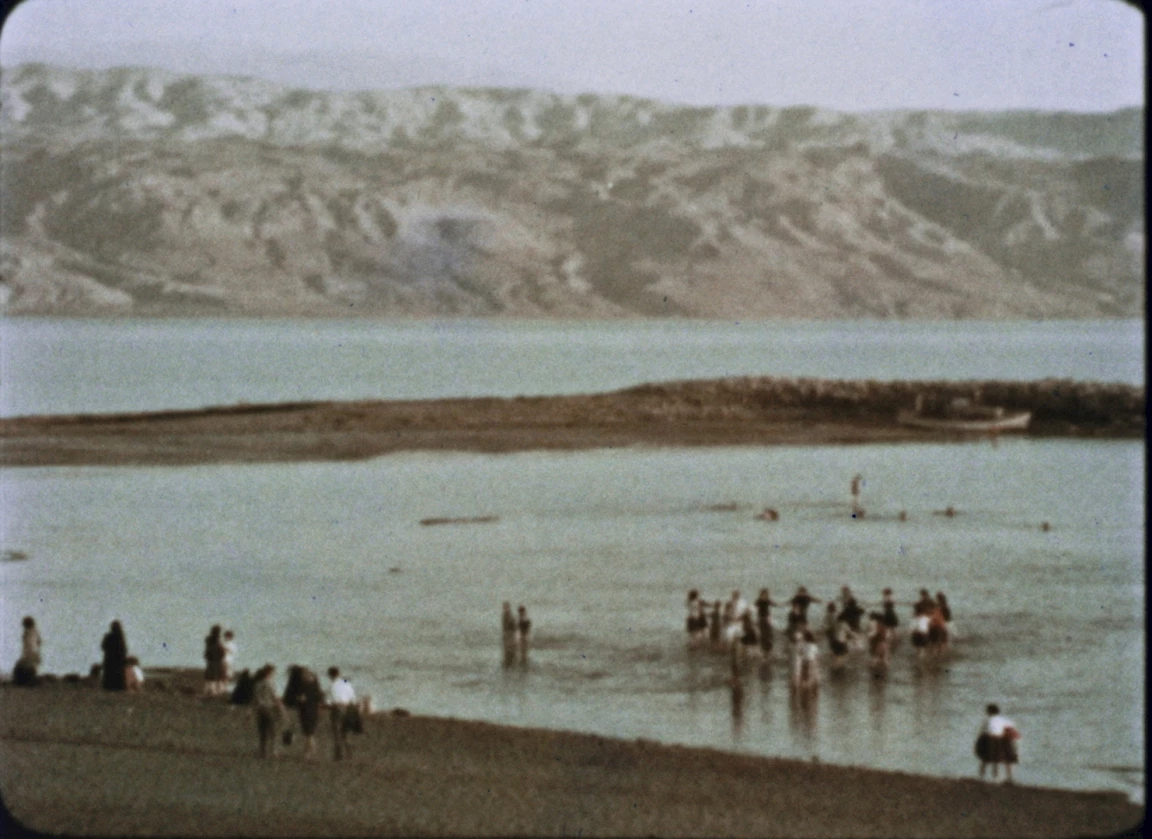Editors' Picks: Nick Aikens
As part of a series, members of L’Internationale Online editorial board revisit the archive of the platform, selecting contributions that resonate for them, their practice and the Museum of the Commons project. Here Nick Aikens looks to contributions by Rasha Salti, Rona Sela and Subversive Film to consider collective study and enacting solidarity.
I write struggling to comprehend the tragic and unending loss of innocent life in Palestine and Israel, and governments’ failure to call for its immediate end. Amidst the unabated and disorienting reels of images, data, statements, open letters – and silences – I have been grappling with how and when we speak. As Fred Moten persuasively argued in a recent interview, it feels incumbent on the cultural sphere – that works through complexity – to think in excess of issuing pronouncements, and to engage in ‘collective study’. Another urgent task is to consider how cultural institutions can act both from their different contexts, positionalities and spheres of influence, as well as collectively in this time of emergency. With this in mind and working within the frame, and limits, of the Editor’s Picks series I look to the archive of L’Internationale Online.
These texts were written since 2016 and explore discourse and acts of solidarity within the long arc of the struggle for Palestinian liberation. I begin with curator and researcher Rasha Salti’s contribution to the Glossary of Common Knowledge in which she saliently unpicks both the power and historical contradictions of the term ‘solidarity’. She begins by outlining its ‘deceptively unambiguous’ meanings: ‘expression of collective will (whether voluntary or coerced), the conscious basis for collective action, as well as the principle for the establishment of organisations or the paradigm headlining international diplomacy’. ‘In reality’, she goes on ‘solidarity is a vexing, complex and misleading notion, perceived at once to be “organic”, almost inevitable, to produce change immediately and effectively (...) but at the same time to be slow to coalesce, and not to systematically impel a forward-looking, progressive, correctively egalitarian or transformative movement.’ In the clamour – and silence – of expressions of solidarity, Salti’s words ring painfully true. Solidarity has diverse historical resonances that have been mobilised, and instrumentalised, to different ends. Understanding when and how to express – or more importantly enact solidarity – seems a fundamental task for organisations such as L’Internationale, whose name (and self-image) is borrowed from the workers’ anthem and the history of solidarity itself. Holding the possibility and promise for ‘collective action’ seems a responsibility L’Internationale must take on.

Past Disquiet: Narratives and Ghosts from The International Art Exhibition for Palestine, curated by Rasha Salti & Kristine Khouri, exhibition view, Museu d’Art Contemporani de Barcelona, 2014. Photo courtesy of MACBA.
Salti then goes on to offer powerful examples of internationalist, artistic alliances working towards a common cause. She charts Past Disquiet, the long term research-exhibition project she and co-curator Kristine Khouri carried out on networks of solidarity collections. Beginning with the International Art Exhibition for Palestine (1978–1982) and including projects such as Art Contre/Against Apartheid (1982–1994) these projects, and Salti and Khouris’s consideration of them today, are compelling instances – for the L’internationale network and others – of artists and institutions enacting solidarity.
In curator Rona Sela’s ‘The Hump of Colonialism, or The Archive as a Site of Resistance’ published in Hebrew and English as part of the publication Decolonising Archives (2016), the ‘imperial technologies’ of the archive, as artist and theorist Ariella Aisha Azoulay would name them, of the specific example of Israeli settler colonialism is described and exposed. Sela offers a succinct analysis of the role these archives play within the violent history of Israel and Palestine dating back to the 19th century. She then highlights how different artistic research practices, including the work of Kamal Aljafari, Meir Gal and her own work, offer alternative narratives. Sela’s text points to the vital work of art and artistic thinking in questioning, and subverting, the institutional apparatus that allow both the conditions and narrative of settler colonialism to flourish.

Kamal Aljafari, Not Without Me, Radcliffe Gallery, Harvard, 2010, courtesy of the artist.
I turn to the third contribution – a conversation I had with the film collective Subversive Film earlier this year – to re-engage with a practice from the context of the events of the past few weeks. As Reem Shilleh powerfully states, the context of Palestine and ‘the struggle for liberation from a settler-colonial and apartheid regime’ is ‘specific’ because it is ‘ongoing’. Writing of the films that are the inspiration and source material for their work she says: ‘Even though the revolutionary period during which the films were made has ended. There is no post-liberation in Palestine. We still need those films as a resource, so we return to them to see how these networks of distribution and support operated, because showing films about Palestine is exercising solidarity’. Focusing on the long term project Tokyo Reels (2022), and its re-reading today, underscores the inter-connected histories of violence and war that are now entering its deadly next chapter; the impossibility of ‘seeing’ and ‘knowing’ the archive and by inference the history it signals, in full; and the role of different networks of solidarity that underpinned the Tokyo Reels project and that are central to Subversive Film’s practice at large. Most compellingly for me, they offer a concrete model of solidarity through practice. As Mohanad Yaqibi has stated, the labour of digitising, of translating and researching these films, is where solidarity becomes operational.
Salti, Sela and Subversive Film offer discursive, artistic and practice-led lenses through which to view the decades-long struggle for Palestinian liberation. They point to the unique possibility of working with art and ideas to engage complexity, reflection and speculation even – especially – in the most perilous of times. Most importantly perhaps they show different modalities and forms that can work beyond declarative utterances, offering inspiring models for how solidarity itself can be enacted.

Still from Welcome to Jordan (1964, dir. Tom Hollyman). Image capture by Subversive Film.
Nick Aikens is Managing Editor and Research Responsible for L’Internationale Online. He is employed as Researcher at HDK-Valand, host of the platform.
Rasha Salti, ‘Solidarity’, Glossary of Common Knowledge, 2015
Rona Sela, ‘The Hump of Colonialism, or The Archive as a Site of Resistance’, Part of Decolonising Archives, 2016
Nick Aikens and Subversive Film, ‘The Kitchen, an Introduction to Subversive Film with Nick Aikens, Reem Shilleh and Mohanad Yaqubi’, Opinions, 2023
Related contributions and publications
-
Editors' Picks: Nick Aikens
Nick AikensEditors' Picks -
Editors' Picks: Ezgi Yurteri
Ezgi YurteriEditors' Picks -
Editors' Picks: Eric Otieno Sumba
Eric Otieno SumbaEditors' Picks -
Editors' Picks: Cathryn Klasto
Cathryn KlastoEditors' PicksHDK-Valand -
Editors’ Picks: Jasna Jakšić
Jasna JakšićEditors' Picks -
Editors’ Picks: Yolande Zola Zoli van der Heide
Yolande Zola Zoli van der HeideEditors' PicksVan Abbemuseum